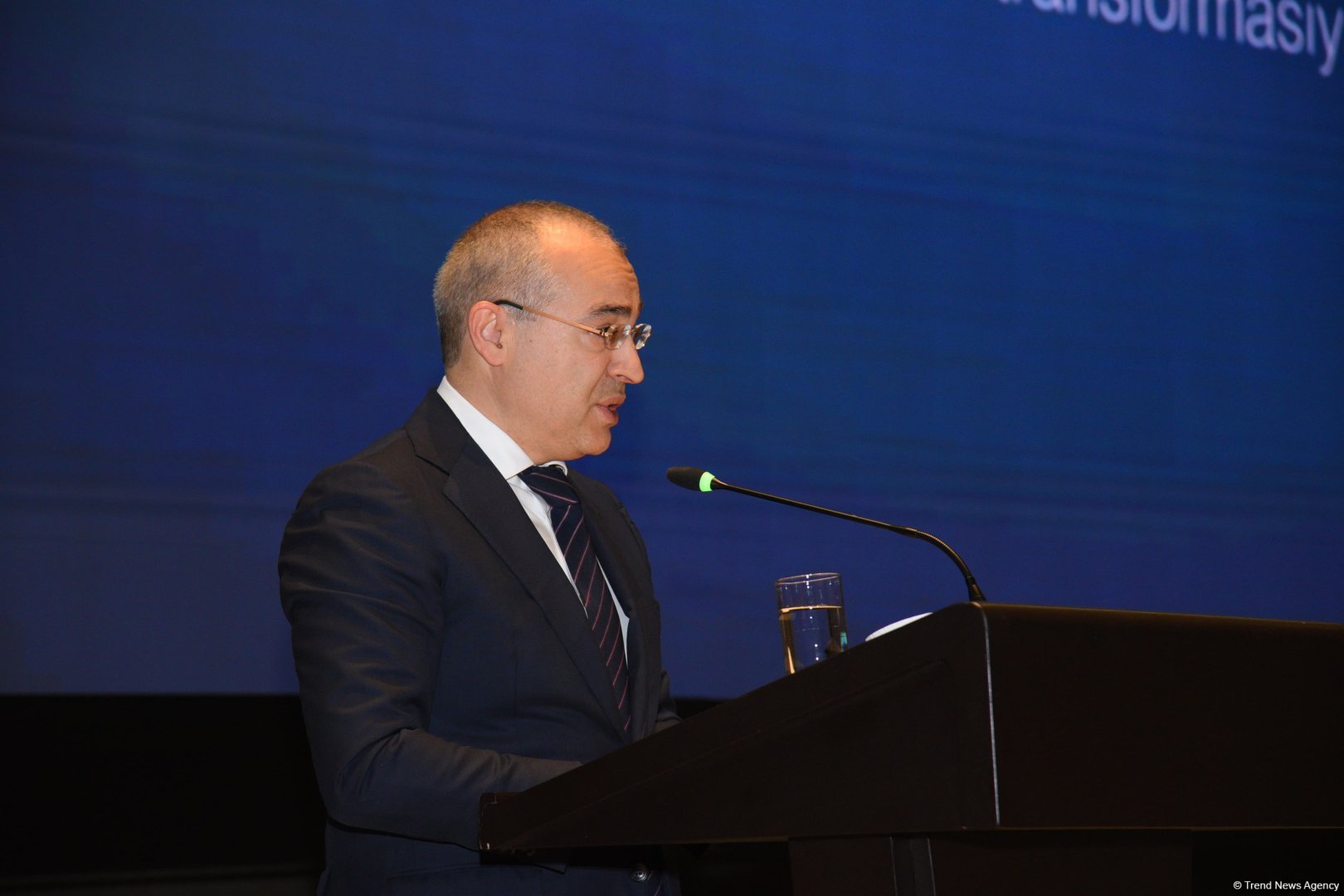BAKU, Azerbaijan, November 19. Last year, Azerbaijan's non-oil and gas sector recorded a GDP growth rate of 6.8 percent, while this year the pace has slowed to 3.1 percent, the country's Economy Minister Mikayil Jabbarov said during today’s plenary session of the parliament, Trend reports.
Speaking at a discussion on the draft law “On the State Budget of the Republic of Azerbaijan for 2026,” Jabbarov stated that this slowdown is observed across nearly all sectors.
For instance, growth in construction has fallen from 15.5 percent to 4.6 percent, in transport from 15.7 percent to 2.4 percent, in tourism from 11.3 percent to 9.2 percent, in trade from 3.7 percent to 3.3 percent, and in the communication and information sector from 12.1 percent to 8.5 percent.
“Each sector contributing to GDP faces the challenge of achieving its development targets, including measurable indicators such as sectoral growth, private investment, exports, and employment. Coordination between leading financial and economic authorities and sectoral institutions driving economic growth is particularly important,” Jabbarov said.
He drove home the point that sectoral institutions are the backbone of tapping into fresh avenues for economic growth by ramping up private investment. Tools to boost private investment are varied and include the implementation of the Public-Private Partnership (PPP) law adopted in 2022, such as desalination projects, enhanced support from the banking sector to the real economy, the use of monetary policy to support investment-driven growth without undermining inflation targets, interest subsidies on loans, expansion of guaranteed state procurement mechanisms, and the attraction of direct foreign investment.
“Tools such as leveraging support mechanisms, expanding interest subsidy programs on loans, implementing guaranteed state procurement, and attracting foreign direct investment play a critical role,” Jabbarov added.
In 2022, Azerbaijan enacted a comprehensive law on Public-Private Partnership (PPP) to establish a legislative framework for collaboration between the government and the private sector in the provision of public services and infrastructure projects. The legislation seeks to enhance transparency, draw private and foreign investment, augment the efficiency of governmental services, and foster economic growth through partnerships grounded in competition, transparency, and efficacy.
Stay up-to-date with more news on Trend News Agency's WhatsApp channel







